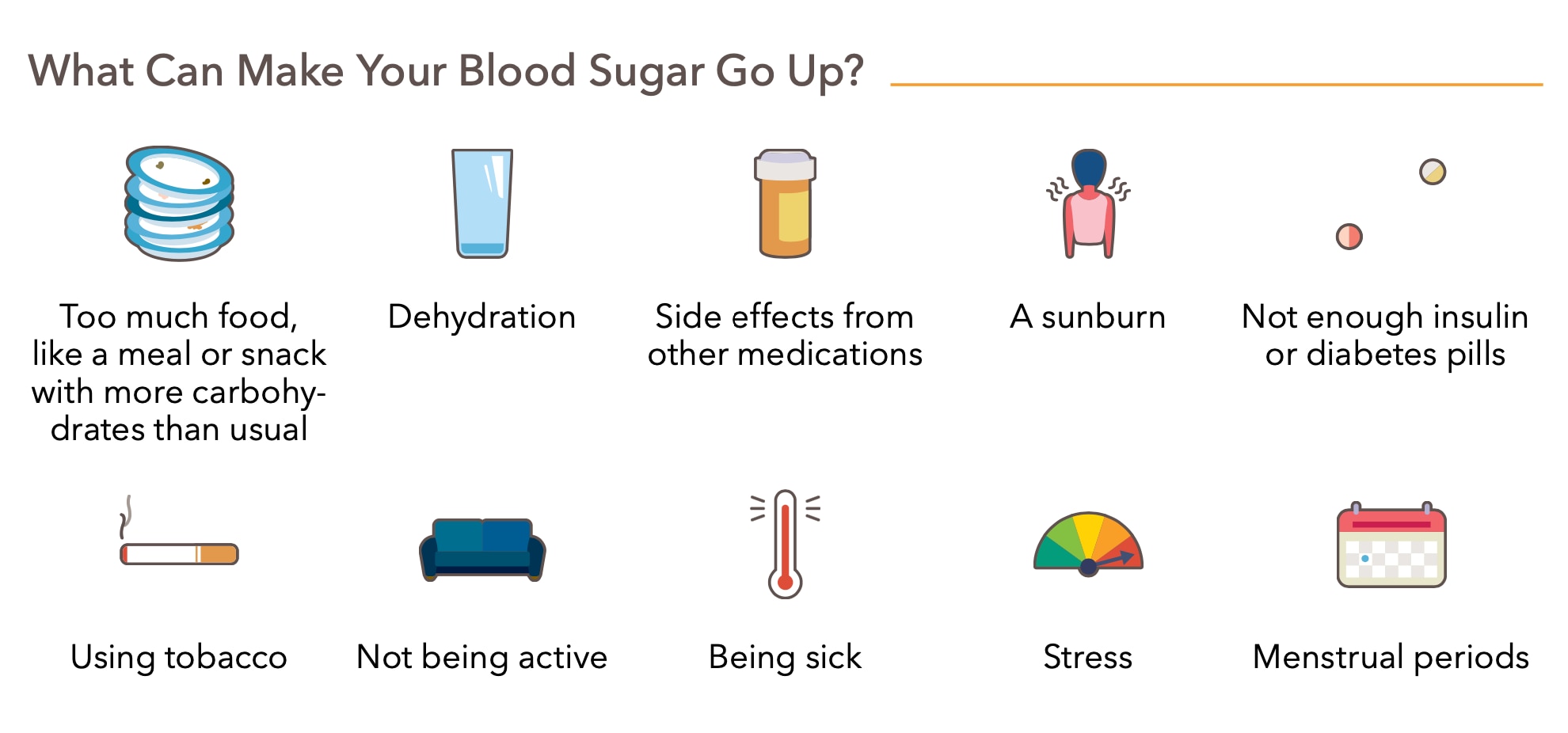Keep your blood sugar on target by learning how food, exercise, medications, and other factors can affect it.
Know what affects you
Checking your blood sugar may feel like it’s just an exercise in confirming that your numbers are or aren’t on target. The greater benefit, however, is that blood glucose testing helps you understand why your levels are what they are.
When you put checking your blood sugar together with tracking your activities of daily life, you soon see how your choices throughout each day affect your numbers — and that’s the path to controlling your blood sugar.
What can make your blood sugar go up?
- Too much food, like a meal or snack with more carbohydrates than usual
- Dehydration
- Side effects from other medications
- A sunburn
- Not enough insulin or diabetes pills
- Using tobacco
- Not being active
- Being sick
- Stress
- Menstrual periods
What can make your blood sugar go down?
- Being more active than usual
- Side effects from other medications
- Alcohol, especially on an empty stomach
- Missing or delaying a meal or snack
- Insulin or diabetes medication
Solve the mystery of your blood sugar levels
Together, testing and tracking your blood sugar give you clues. These clues create connections between what you were doing or feeling and how your blood sugar responded.
- How were you feeling when your blood sugar tested high? (“I was stuck in traffic for 2 hours.”)
- What were you doing when your blood sugar tested low? (“I was on a hike without a good enough snack.”)
From those connections, you can start to see patterns, and that’s where you start getting control of your blood sugar.
Get into a new routine
Changing your daily routine isn’t easy or fun, but it is a part of getting your blood sugar under control.
Success comes in small steps. To start, just pick one task you can add to your daily routine. Here are some examples of small steps:
- Test only after meals.
- Test before and after just one specific meal (breakfast, lunch, dinner, or snack, but not all).
- Write down what you had for lunch each day.
- Set reminders on your phone to perform the blood tests that you intend to do.
Then try combining tasks.
- Test before you go to bed and write down how you’re feeling.
- Test after dinner each day and write down what you ate.
- Test before and after breakfast.
Getting into the routine of testing and tracking will help you create a routine of life where you can keep your blood sugar numbers right on target!
Frequently asked questions
Why is my blood sugar higher in the morning than when I went to bed?
It could be many reasons: food, medication, the dawn effect, or the Somogyi effect.
Dawn effect
If your blood sugar is normal or high at around 2 or 3 a.m., it could be the dawn effect. This is a normal rise in blood sugar as your body prepares to wake up.
In the early morning, hormones cause your liver to release sugar into your blood. If your body doesn't produce enough insulin to get sugar into your cells, sugar can stay in your blood and your levels will be high before eating breakfast.
Somogyi effect
If your blood sugar is low at around 2 or 3 a.m., it could be the Somogyi effect. This happens when your blood sugar is too low in the early morning and hormones are released. The hormones help increase your blood sugar levels, which is a good thing. However, they may also cause your blood sugar to be higher than normal later in the morning.
With testing and tracking, you and your doctor can figure out what your blood sugar is doing at night. With those clues, you can come up with a plan for how to control them better.
Bottom line
Food, exercise, medication, stress, and other factors can change your blood sugar levels. Knowing how they affect you can help you keep your blood sugar on target.


